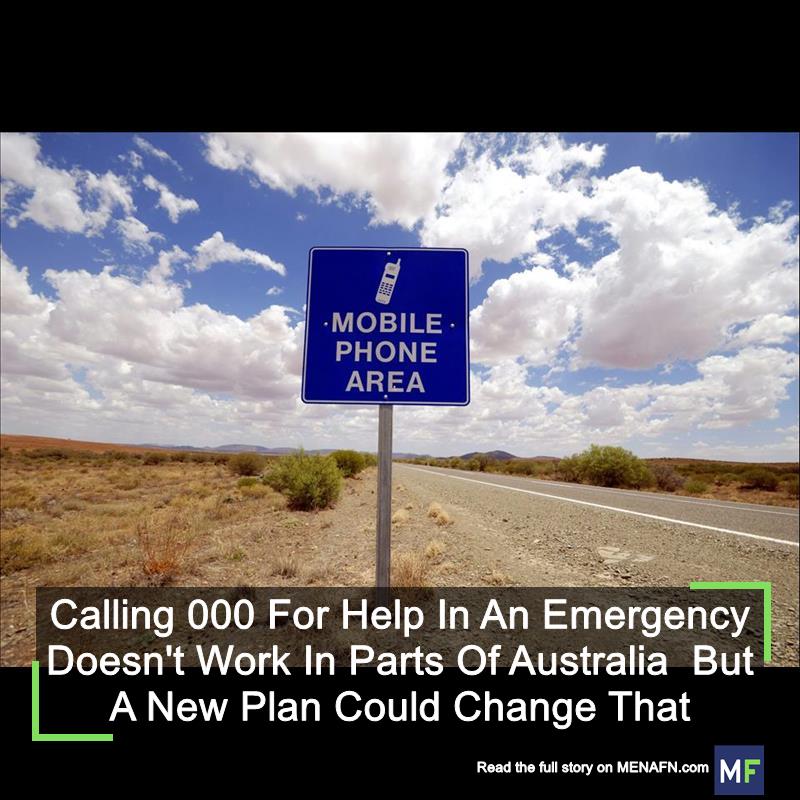Calling 000 For Help In An Emergency Doesn't Work In Parts Of Australia But A New Plan Could Change That
The proposal would create a new universal outdoor mobile obligation for Australian mobile carriers such as Telstra, Optus and Vodafone. This obligation would require carriers to work with companies operating low Earth orbit satellites to provide access to mobile voice, SMS and the Triple Zero (000) service almost everywhere across Australia.
This world-first reform would be a major step forward for public safety – especially in regional and remote areas, where mobile coverage is currently poor to nonexistent. The Albanese government says that if it wins the upcoming election, it would implement the reform by late 2027.
However, implementing it will come with some technical challenges.
Satellites boost mobile accessLow Earth orbit satellites operate at an altitude of between 160km and 2,000km above the Earth's surface. Examples include the roughly 7,000 Starlink satellites owned and operated by tech billionaire Elon Musk's company, SpaceX, that are currently in orbit.
The new generation of these satellites incorporates a technology known as“direct to device”. This means they can directly connect with mobile phones. And it is this feature the Labor government's new proposal seeks to utilise.
Specifically, the proposal aims to:
-
expand Triple Zero (000) access for Australians across the nation
expand outdoor voice and SMS coverage into existing mobile black spots
improve the availability of mobile signals during disasters and power outages.
The proposal adds to carriers' existing obligations to provide fixed phone and internet services across Australia .
In a few years, low Earth orbit satellites should also be able to provide data using an enhanced direct to device technology. The government has said it will consider including data in the obligation when the opportunity arises.
There are roughly 7,000 Starlink satellites owned and operated by tech billionaire Elon Musk's company, SpaceX, currently in orbit. Christian Bruna/EPA Staying safer and better connected in the bush
The telecommunications industry has long worked towards a goal of providing universal outdoor mobile coverage in Australia. Labor's new proposal provides the impetus for the industry to take this major step forward.
It would also provide the guidance necessary to ensure a consumer safety focus remains the fundamental rationale for telecommunications.
This policy would ensure everyone can connect to emergency services, friends and family during emergencies or natural disasters.
The benefits for people living and working in regional and remote areas would be considerable.
For example, truck drivers experiencing a breakdown in the outback would be able to call for assistance. And farmers working in the remote wheat belt regions of Western Australia could stay connected with other workers and their families.
Technical problems to solveHowever, there are some technical problems the telecommunications industry will need to overcome to achieve universal outdoor mobile coverage.
Across the world, nations are rolling out mobile networks that use different radio frequencies. For the universal outdoor mobile obligation to be successful, the mobile carriers will need to work with satellite providers to ensure the spectrum bands used in Australia for the 4G, and in the future 5G, mobile networks will also work with satellites.
Mobile devices connect with the network when the user makes a phone call, sends an SMS text message or browses the internet.
When the mobile is connected to a low Earth orbit satellite, it's important that it can tell apps to“shut up” and stop trying to connect to the network to transmit data. Otherwise the connected mobiles could cause congestion and limit service reliability and resilience.
There are mobile handsets that have this capability today. But the vast majority of older mobile handsets do not. A list of compatible mobile handsets would need to be compiled and made available, so that consumers can consider this information when purchasing a mobile.
To connect to a low Earth orbit satellite, it is anticipated a mobile will need to be used in a location where the sky can be seen directly. And initially at least, using a satellite-connected mobile inside a vehicle will require an external antenna.
The universal outdoor mobile obligation would enable drivers experiencing a breakdown in the outback to call for help. DedovStock/Shutterstock A timely step forward
The government says the introduction of a universal outdoor mobile obligation would provide an opportunity to modernise and expand existing service obligations for mobile carriers. For both to be successful, there is also a need for minimum performance standards.
Providing mobile voice call and SMS text access across Australia is of little value if the service quality is poor, and fails during an emergency or natural disaster.
That being said, Labor's proposal should gain bipartisan support. It is a timely step forward that will bring positive outcomes for all Australians, especially those living and working in regional and remote areas.

Legal Disclaimer:
MENAFN provides the
information “as is” without warranty of any kind. We do not accept
any responsibility or liability for the accuracy, content, images,
videos, licenses, completeness, legality, or reliability of the information
contained in this article. If you have any complaints or copyright
issues related to this article, kindly contact the provider above.
Most popular stories
Market Research

- Kucoin Presents Kumining: Embodying Simple Mining, Smart Gains For Effortless Crypto Accumulation
- 1Inch Becomes First Swap Provider Relaunched On OKX Wallet
- Cregis Joins TOKEN2049 Singapore 2025
- Leverage Shares Launches First 3X Single-Stock Etps On HOOD, HIMS, UNH And Others
- Blockchainfx Raises $7.24M In Presale As First Multi-Asset Super App Connecting Crypto, Stocks, And Forex Goes Live In Beta
- BILLY 'The Mascot Of BASE' Is Now Trading Live On BASE Chain






















Comments
No comment